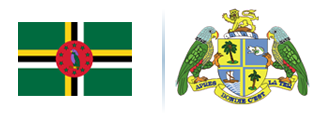Last Update: October 2021


| International Covenant on Economic, Social and Cultural Rights | International Convention on the Elimination of all Forms of Racism | Convention on the Rights of Persons with Disabilities | Convention on the Elimination of all Forms of Discrimination against Women | Convention on the Rights of the Child | International Convention on the Protection of the Rights of All Migrant Workers and Members of their Families | Constituent Agreement of the Development Fund for Indigenous Peoples in Latin America and the Caribbean |
| 17 June 1993 | 25 April 2024 | 1 October 2012 | 15 September 1980 | 13 March 1991 | 25 April 2024 | 25 April 2024 |
| View details | View details | View details | View details | View details | View details | View details |
Year of Latest Observed Constitution |
Social Housing |
Work and Social Security |
Public Health |
Public Education |
Social Development |
Children and Adolescents |
Youth/Young Adults |
Women |
Older Persons |
Persons with Disabilities |
Afrodecendants and Indigenous Peoples |
Migrants |
| 1978 | ||||||||||||
| View details | View details | View details | View details | View details | View details | View details | View details | View details | View details | View details | View details |
Children and Adolescents |
Youth/Young Adults |
Older Persons |
Women |
Peoples with Disabilites |
Afrodescendants and Indigenous Peoples |
Migrants |
Public Education |
Work and Social Security |
Social Housing |
Public Health |
Social Development |
|
| Legal Instrument | Codigo de la Infancia y de la Juventud | Codigo de la Infancia y de la Juventud | n.d. | n.d. | n.d. | n.d. | 'Immigration and Passport Regulations Chapter 18:01' (1996) | n.d. | Ley de Protección al Empleo | n.d. | n.d. | n.d. |
| Law | Law | Law | Law |
| Country | Dominica |
| Main authority | |
| Year of creation | |
| Coordinating authority | |
| Members |
| Population segment | Children and Adolescents |
Youth/Young Adults |
Older Persons |
Persons with Disabilities |
Women |
Migrants |
| Main protection mechanism | Ministerio de Juventud, deporte, cultura y empoderamiento del electorado/ División de Desarrollo Juvenil | Ministry of Social Services, Family and Gender Affairs | Immigration Division | |||
| Legal Instrument | 'Immigration and Passport Regulations Chapter 18:01' (1996) |
|
Technical-operational dimension | |||||||
| Unique Registry of Participants | Sistema Integrado de Administración Financiera /b | Sectoral Plan for Social Development | Transparence - system for accessing public information from the State | Integrated Social Information System |
Evaluation mechanisms for social programs |
|||
General |
Sectorial |
General |
Sectorial |
|||||
| Does not information | ||||||||